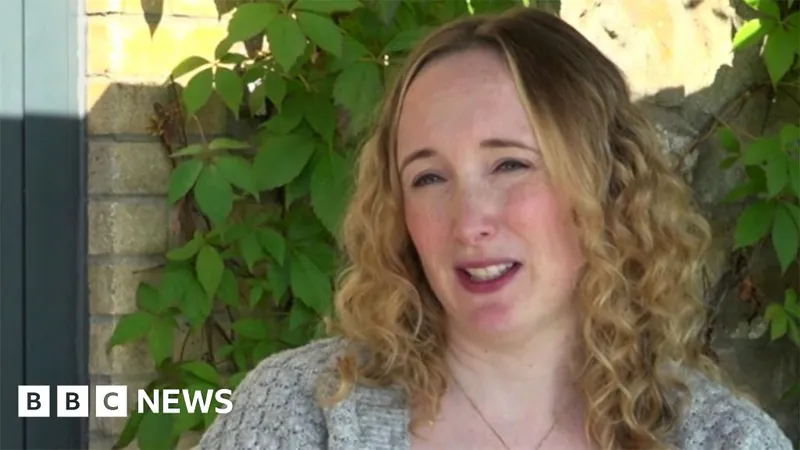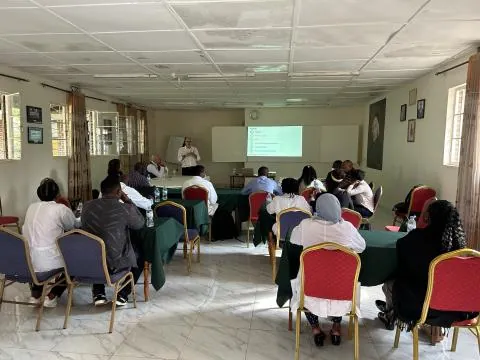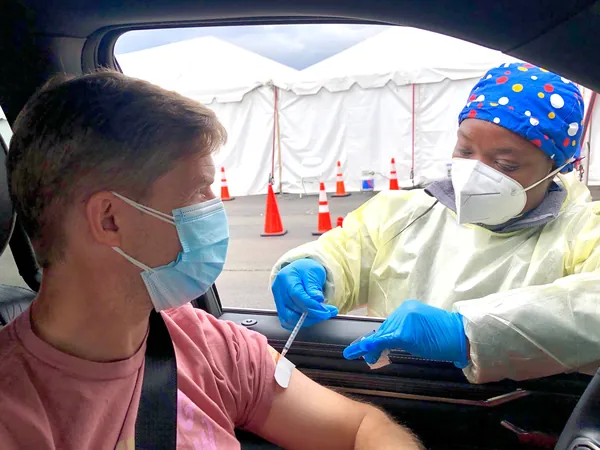
Endometriosis: A Silent Crisis Ignored by Health Services?
2024-10-08
Author: Sarah
Lara Stevens' Personal Experience
Lara Stevens, a 36-year-old university lecturer from near Cardiff, speaks out about the distressing similarities between her experience with endometriosis and her childhood battle with non-Hodgkin lymphoma. She argues that while cancer is prioritized within healthcare systems, the urgency of treating endometriosis—a condition that can spread and wreak havoc on various organs—remains alarmingly overlooked.
The Overlooked Condition
"Endometriosis can be growing inside me, and I wouldn't even know where it is or what damage it could cause next," Lara asserts, highlighting the constant fear that accompanies her condition. With gynaecology waiting lists in Wales skyrocketing by 92% over the last four years, many specialists express frustration that women's health issues like endometriosis are often viewed as less critical compared to other surgical procedures.
Understanding Endometriosis
Endometriosis is defined as a chronic gynaecological disorder in which tissue similar to the uterine lining grows in areas outside of the womb, such as the fallopian tubes, pelvis, and intestines. In rare instances, it has even been discovered in the lungs and brain. Symptoms can range from severe pelvic pain and debilitating fatigue to infertility—truly a condition that deserves urgent attention.
Challenges on the Path to Motherhood
For Lara, the journey to motherhood has been fraught with challenges. After enduring multiple miscarriages over four years and facing damaging delays for fertility treatment, she resorted to using private health insurance to expedite her endometriosis surgery. "I was devastated that my health condition wasn’t prioritized. By the time my surgery was performed, I was riddled with endometriosis," she recalls. "I can't help but wonder what could have happened if I had remained on the waiting list."
Post-Surgery Concerns
Despite her surgery, where doctors reportedly found extensive endometriosis affecting her bladder and bowel, a lesion remains on her bowel, indicating that further medical intervention is still needed. Currently, she is navigating the long wait times associated with routine follow-up appointments within the NHS. A staggering 50,000 women are currently on waiting lists for gynaecological care in Wales, with many waiting longer than the target of 26 weeks.
A Growing Awareness
Lara's concerns echo throughout the medical community, as Geeta Kumar, vice-president for clinical quality at the Royal College of Obstetricians and Gynaecology, acknowledges the rising awareness among women regarding such conditions. "While this awareness is beneficial, women's health issues have been deprioritized for too long," she points out. Her organization emphasizes the need to reframe the language around these conditions to help convey their seriousness, moving away from the term "benign" which implies lack of urgency, to a more accurate designation as "non-cancerous."
The Emotional Toll of Neglect
The consequences of this neglect are dire; women suffering from endometriosis report not only physical pain, but profound emotional distress. Many feel isolated, fearing that their debilitating symptoms may be dismissed by healthcare providers—a situation compounded by the difficulties in obtaining timely referrals to specialists. "Women are often gaslit by doctors, told to tolerate their pain as if it’s a natural part of life," asserts Delyth Jewell, a Member of the Senedd who advocates for women's health.
Government Response and Advocacy
The Welsh government's commitment to addressing disparities in women's healthcare, which includes a promised 10-year women's health plan, still feels far from realized. Meanwhile, advocacy groups like Fair Treatment for the Women of Wales (FTWW) are amplifying voices of women who have faced financial ruin or relationship breakdowns due to inadequate health services.
The Need for Urgent Action
As Lara prepares for the potential need for further treatment, she emphasizes that endometriosis should be treated with the same urgency afforded to cancer. "We must recognize the unpredictable nature of this condition and the importance of continuous monitoring and support," she concludes. The battle for recognition and proper treatment for endometriosis continues—an issue that affects thousands of women and demands immediate attention from health authorities.





 Brasil (PT)
Brasil (PT)
 Canada (EN)
Canada (EN)
 Chile (ES)
Chile (ES)
 España (ES)
España (ES)
 France (FR)
France (FR)
 Hong Kong (EN)
Hong Kong (EN)
 Italia (IT)
Italia (IT)
 日本 (JA)
日本 (JA)
 Magyarország (HU)
Magyarország (HU)
 Norge (NO)
Norge (NO)
 Polska (PL)
Polska (PL)
 Schweiz (DE)
Schweiz (DE)
 Singapore (EN)
Singapore (EN)
 Sverige (SV)
Sverige (SV)
 Suomi (FI)
Suomi (FI)
 Türkiye (TR)
Türkiye (TR)